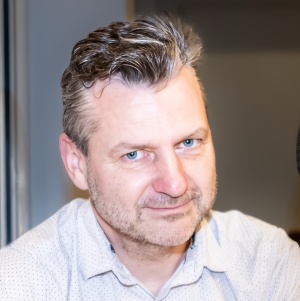 “The final frontier –
“The final frontier –
on the complexity and
frailty of human memory”
Associate Professor Muireann Irish
Brain & Mind Centre
University of Sydney
Wednesday 8 August 2018
Gallery Room, State Library of NSW, Sydney
Human memory remains one of the great scientific enigmas and one which continues to perplex neuroscientists, philosophers, and psychologists alike. Our memories are our most prized possessions, enabling us to revisit defining events from the past and guiding us towards adaptive behaviours in the future. The relative ease with which we mentally navigate back and forth through subjective time, however, belies the incredible complexity of these processes. With the advent of high-resolution neuroimaging techniques, it is now possible to map the regions of the brain that activate when we recollect the past; however, it is only when memory begins to fail that we can truly appreciate its intricacies. In this lecture Associate Professor Muireann Irish gave an overview of work from her group exploring different facets of memory dysfunction across a range of neurodegenerative disorders including Alzheimer’s disease, semantic dementia, and frontotemporal dementia. Using a combination of novel experimental tools and advanced neuroimaging techniques, we are moving towards a refined understanding of how progressive atrophy to distributed brain networks impacts the capacity not only to remember the past but also to envisage the future. In doing so, she highlighted the neurocognitive mechanisms that must be functional to support a range of memory processes as well as considering the devastating effects of losing these uniquely human functions.
Muireann Irish is an Australian Research Council Future Fellow and Associate Professor of Psychology at the Brain & Mind Centre, University of Sydney. Originally from Ireland, Muireann completed a Bachelor degree in Psychology at Trinity College Dublin (1st Class Honours), then a PhD in Cognitive Neuropsychology before relocating to Australia in 2010. Since then, she has produced over 80 publications and has received over $2.5million in competitive funding from such sources as the ARC, NHMRC, Brain Foundation, and Alzheimer’s Australia. Muireann’s research focus is the cognitive neuroscience of memory and how pathological insult to large-scale brain networks compromises sophisticated expressions of memory. Ultimately, she hopes her research will inform the early and accurate detection of dementia as well as the development of interventions to improve quality of life and wellbeing for those affected.
 “The final frontier –
“The final frontier – 






